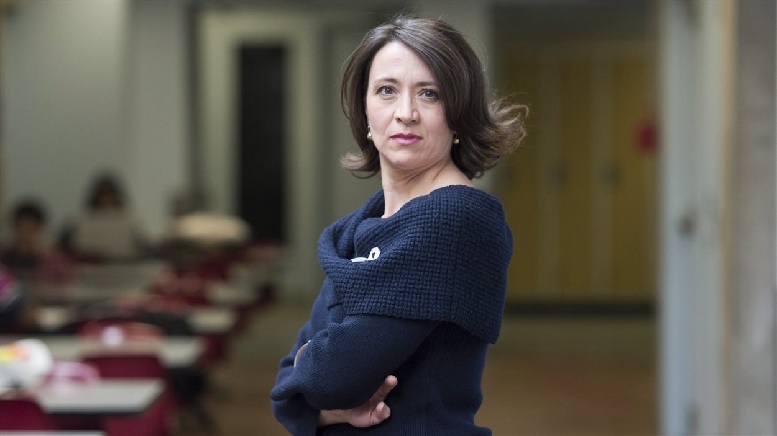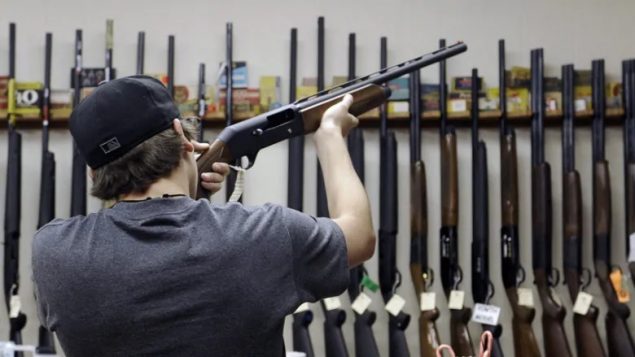In light of the ongoing and often heated debate about firearms use and ownership in Canada, in 2016 the Liberal government re-created a citizen committee with new members to advise the government on policy. The Canadian Firearms Advisory Committee (CFAC) had originally been created by the previous Conservative government.
The ten members (up to 15) on the committee would serve for two years as the government website says, in order “to provide advice to the Minister of Public Safety and Emergency Preparedness on pragmatic measures to reform Canada’s firearms policies, laws and regulations to ensure a modernized firearms regime that will keep Canadians safe and safeguard their rights and freedoms in an open and democratic society”.
The committee met several times before the government introduced Bill C-71 to tighten firearms regulations.
Among other things the bill expands background checks from the current 5 year record, to a lifetime record. It also requires sellers to keep records for sales including long guns, and requires purchasers to present valid licences. The latter is something that has long been done routinely anyway, whether in stores or private sales. Records for all restricted-class firearms have been kept since 1934.
“We’re just being used”. Former committee Chair Jack Major
Now a former chairman has himself spoken out against the committee. Retired Supreme Court judge Jack Major said this week that he had written twice to Public Safety Minister Ralph Goodale early in his mandate about the need to hear witnesses and get expert testimony in order to provide informed advice, but received no reply.
Quoted in the Canadian Press he said that at the time he had written, “If the committee’s going to be of any value, we have to get evidence”. He didn’t formally quit but said of his decision to not return after C-71 was introduced, “To simply be told what the government had done without any input from us, I felt, well, we’re just being used. You know, there’s a committee that’s not doing anything, but it looks pretty good on paper.”
Conservative Party public safety critic Pierre-Paul Hus, is quoted by the Canadian Press saying, “Their own members are saying the Trudeau Liberals are refusing to listen to witnesses and experts. This proves what Conservatives have been saying all along – the Liberals’ approach to firearms is based solely around politics and not evidence”.
That sentiment was echoed by Tracey Wilson of the firearms advocacy group, Canadian Coalition for Firearms Rights (CCFR) who said of the Liberal revamped FCAC, “I think this was a missed opportunity for the Liberals to have real advisors on a very complex problem. It appears that most of the appointments were more or less appeasements and none of them were really consulted when crafting policy. This is clear evidence that the Liberals didn’t plan to do what’s best for public safety, but rather use the members of CFAC to hide behind with their hurried and sloppy legislation”.
Criticism has also this week come from another source also on the committee, vice-chair Natalie Provost who suddenly resigned this week.
She survived being shot in the Polytechnique University shootings in which 14 women were killed in December 1989, and has a longtime association with the gun-control lobby group, PolySeSouvient (Poly remembers).

Shooting survivor Natalie Provost, shown here in 2014, was later appointed by the Liberals as Vice-Chair of the Firearms Advisory Committee. She quit this week over what see says is a lack of federal action on gun control (Graham Hughes- CP)
In her resignation letter she said the government has failed to take strong enough action on firearms, especially ignoring her calls to reclassify modern sport rifles often labelled as “assault-style” rifles.
Tony Bernardo of the firearms advocacy group Canadian Shooting Sports Association was a former member of the committee before it was revamped in by the new Liberal government. He said the committee was originally created to provide advice, not direction, to the government. Of the resignation of Ms Provost he said, it would appear she misunderstood the role, adding the resignation seemed be an “indication her interest in the committee was to push the gun-ban agenda she has advocated for so many years, not to provide clarity to the Minister’s decision-making process”.
Seven replacement members were added by the federal Liberals in 2017. Two new members were added to the committee in February this year, Wally Oppal, a lawyer, former judge and former politician is the Chair, Christine Creyke is a member of Canada’s Indigenous community and is the Lands Director for the Tahltan Central Government.
Taking over as Vice-Chair was Lynda Kiejko, a civil engineer who has competed internationally in air-pistol.
Additional information-sources







For reasons beyond our control, and for an undetermined period of time, our comment section is now closed. However, our social networks remain open to your contributions.